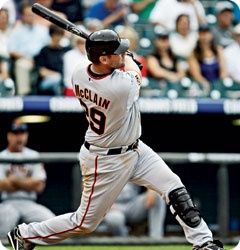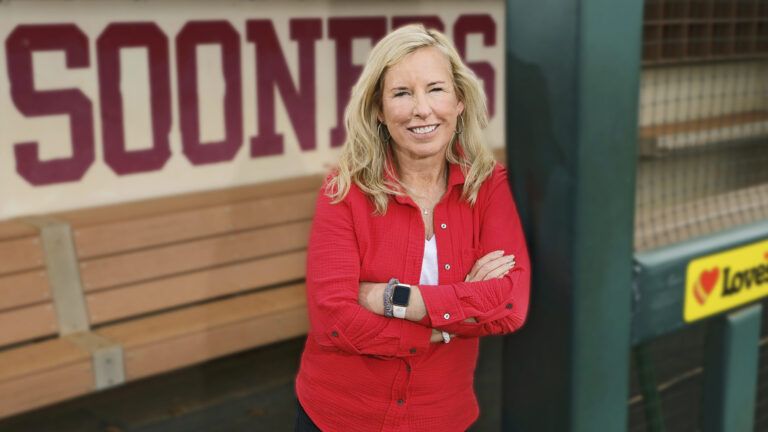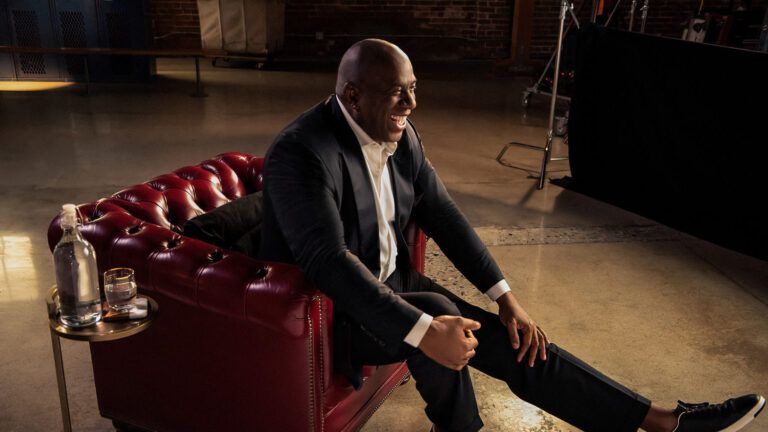My whole life I’ve had this dream, a dream so real I could almost reach out and touch it: a packed big-league ballpark, fans on their feet screaming, me at the plate, the pitcher winding up. There’s the indescribable crack of wood on horsehide. I run hard for first, then slow to a jog. Far away, the ball has sailed in a tremendous arc over the left-field wall. My first major-league home run!
For 19 years my dream was just that…a minor-league fantasy. I’ve played professional ball in towns across the country, from Bluefield, West Virginia, to Fresno, California, to Geneva, Illinois. I’ve even played in Japan. But except for a few scattered games, I’d never made it to the big stage. Never hit that first big-league home run of my dreams.
I’m 36 years old now, way too old to be considered a prospect. The people who care about me—my wife, Jennifer, my family, my friends—have wondered for years when I’ll finally quit. But I still believe in dreams.
Growing up in Simi Valley, California, I played every sport. Yet there was something about hitting a baseball. One day in sixth grade I announced in class, “I’m going to be a major-league ballplayer.” I never wanted to be anything else.
Baseball wasn’t even my best sport. The University of Southern California offered me a full scholarship—to play quarterback. “Lots of guys who do well at USC go to the NFL,” Dad said. But when the Baltimore Orioles drafted me, I told Dad I wanted to go. “I know I’m a little bit of a long shot,” I said. “The Orioles didn’t pick me until the twenty-second round. That’s different than being the starting quarterback at USC. But I’ve waited my whole life for this.”
The next day I left for Bluefield, West Virginia. It was A-ball, the bottom rung in the Orioles’ minor-league system. I won the starting job at third. I was on my way. Except I didn’t tear up the league. In high school I’d been a feared slugger, but the pitchers were a lot tougher in the pros, even the minors. The next season I was reassigned to the same A-ball team. Did I make a mistake? I wondered.
That fall I returned home and ran into my old high school football coach. “Plenty of colleges can use a good quarterback,” he said. “Just say the word and I’ll find you a scholarship.” That night I asked for guidance. Should I take the scholarship? Will I beat myself up the rest of my life for having given up my dream? I tossed and turned half the night till I made a decision. How could I turn my back on the dream I’d been given?
I worked even harder. Trained like crazy. Took batting practice till my hands blistered. My play improved, but more slowly than I’d hoped. Back home, my old buddies had graduated into good jobs. Some had steady girls. Soon they’d be starting families.
By 1997, my seventh season in the minor leagues, I still seemed to be headed nowhere. That spring the Orioles traded me to the New York Mets. At the end of the 1997 season, the Mets gave up on me too. For several nerve-racking months I wondered if any team wanted me.
Finally one team called: the Tampa Bay Devil Rays, then the worst team in all the majors. But I didn’t care. It was the majors. “This is my chance,” I told Jennifer. “They’re looking for somebody, anybody, to step up and prove that he can play.” I reported to spring training full of hope. But when they broke camp, the Devil Rays shipped me back to the minors.
I refused to let it bring me down. About a month into the season something clicked. All those years of practice and training began to pay off.
Suddenly I found my swing. I bashed home runs like I had in high school—34 over the course of the 1998 season. One August morning there was a knock at my hotel door. It was my minor-league manager. “Pack your bags,” he said. “You’ve been called up.”
I grabbed my cell phone and hit speed dial. “Jennifer,” I shouted, “we did it!” Nine long years, I thought, on the plane to Tampa. Maybe the hard part is finally over.
It wasn’t. I didn’t get to play that first night. Then the next game found me on the bench again. Late in the game, the manager signaled for me to pinch hit. I stepped into the batter’s box. This is the moment I’ve dreamed of, I thought. Oh, to hit a home run! A strike sizzled by before I could take a breath. On the next pitch, I flied out weakly to right field. I walked back to the dugout, past Wade Boggs, the Devil Rays’ Hall of Fame third baseman. Boggs didn’t say a word. This was going to be a lot tougher than I’d thought. Two weeks later the team sent me back down.
Frankly, the next six years were a blur. The first two I spent in the minors, the last four with the Seibu Lions, a Japanese professional team. I played strictly for money. I stopped thinking about my big-league dream. I played to survive.
I hit 71 home runs in Japan. But after a few years, the pull of the majors gnawed at me. I returned to the States in the spring of 2005. I was 33—too old to win a regular spot on a major-league team. All I wanted was one last chance to hit a big-league home run. “To hit one out, that would make all those years worthwhile,” I told Jennifer. “If I don’t…” I let the thought slide.
I landed a minor-league contract with the Chicago Cubs, and in mid-August got called up to Chicago. This could be my last chance, I thought. But I struggled as I had in Tampa Bay, and was let go after the season.
The next year I hooked on with the Oakland A’s. I’ll give it one last try, I thought. Had a terrific season for Oakland’s top-level minor-league club. Hit 28 home runs.
The last day of the minor-league season I was at my locker, waiting for that big-league call-up I thought I deserved. Finally the manager approached. “Thanks, Scott,” he said. “Thanks for a great season. But they don’t have room for you in the big club.”
I felt like I’d been punched in the gut. I’d always had a bedrock belief in my ability, even if others didn’t. Now for the first time I was overcome by doubt. I was too old. I had minor-league power. Why, I asked God, did you give me this dream if I couldn’t see it through?
Something told me to give it one last try. I signed a minor-league contract with the San Francisco Giants. After hitting my twenty-ninth home run last year—my fourth in four games—I finally got the call on September 1.
I flew to Denver, where the team was playing the Colorado Rockies. When I walked into the clubhouse, things felt different. I said hi to stars like pitcher Barry Zito and shortstop Omar Vizquel and for once I felt part of a team. The manager put me in the lineup the following day. My first two times up I got hits, even drove in two runs. I felt incredibly relaxed. By the time I came to the plate again in the sixth inning, we were ahead by four runs. I’m going to look for a pitch I can drive, I decided.
I’d faced the Colorado pitcher Steven Register in the minors. He started me out with a couple of fastballs. I knew the next pitch would be a slider. Register wound up and fired. The ball dipped, as I knew it would. I whipped my bat around. Boom! The ball soared high and far, toward left field.
I started running to first, then slowed to a jog just as I had in my long ago childhood dream, and watched the ball sail far over the wall. I did it! I did it! I thought to myself. I slowed my jog till I was nearly walking, so I could take it all in. It was like my dream, only better, because it was so hard won. I didn’t want that trip around the bases to end. That night I must have made a hundred phone calls. But the most important one was to Jennifer. “We did it,” I said.
I played enough games with the Giants last year to qualify as a rookie. A rookie at 36! Not exactly the dream I started out with. But I wouldn’t trade it for anything in the world.






